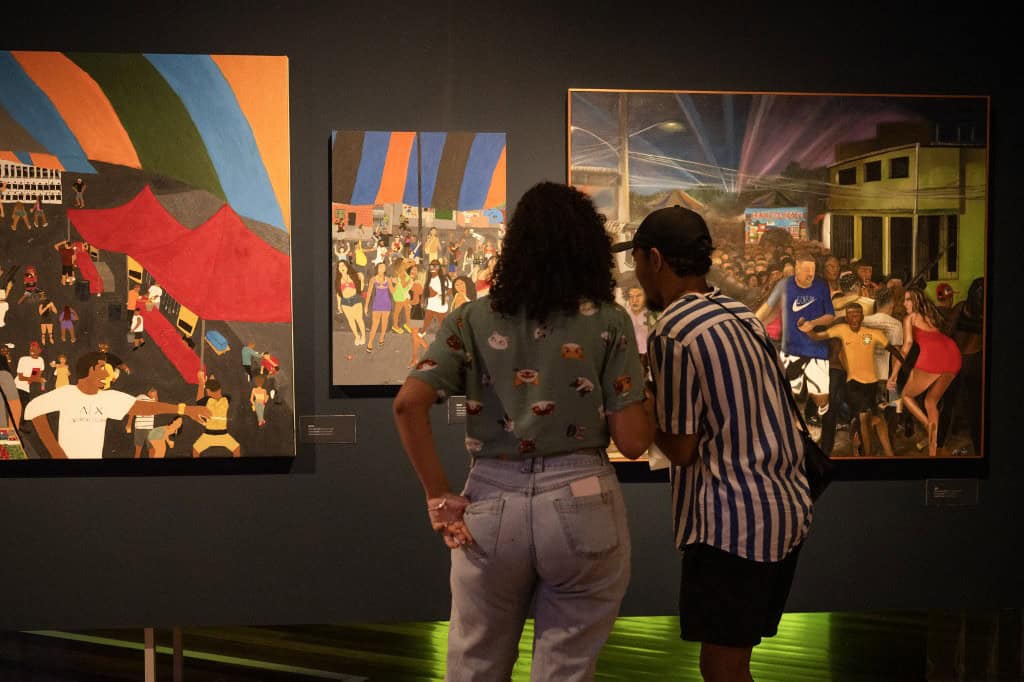From Anitta to Beyoncé, through exhibitions and artistic residencies, funk has left the favelas of Rio to become a global phenomenon. However, prejudices still persist in Brazil.
With influences from hip hop, electronic music, and a good dose of Afro-Brazilian percussion, this music emerged in the late nineties in Rio, from where it expanded to Sao Paulo, Recife, Belo Horizonte, and other large cities in the country. “Funk feeds the self-esteem of the favela,” said writer Taisa Machado, creator of the Afrofunk Rio promotion platform.
“Those of us who work with funk have always known about the strength, musical and cultural quality of the movement, and we were already waiting for this moment,” she notes about its international momentum.
She celebrated, as many did, that American superstar Beyoncé included in her most recent album, “Cowboy Carter”, a song (“Spaghettii”) with a sample from Brazilian artist O Mandrake, a legend of the genre.
Brazilian artist Anitta, the biggest architect of this global projection, proclaims that pride in her new album “Funk Generation”, which hits the market this Friday. Meanwhile, her colleague Ludmilla performed at the recent Coachella festival in California.
Live off my art
In Lapa, a central working-class neighborhood of Rio, a dozen young people from the suburbs and favelas rehearse their final show for #estudeofunk, an “artistic residency” taught at the Fundição Progresso cultural center.
It’s the turn of four girls who, dressed in sports tops and shorts, do “quadradinhos” with their hips under the watchful eye of Celly, the dance director. The idea of the project is to “professionalize” their knowledge and turn their passion into a profitable career, summarizes its creator, Vanessa Damasco.
The success of “funkeiros” artists inspires thousands of people who see them, like soccer players, as a model for economic advancement and life improvement.
“To be able to live off my music, my art, that’s what I want,” confirms Gustavo de França Duarte (MC Gut Original) after the rehearsal. At 35 years old with four children, he has been singing funk for years but works as a night watchman.
Museum piece
The Rio Art Museum also echoes the phenomenon. In “Funk, a Cry of Boldness and Freedom”, hundreds of paintings, photos, videos, and installations mark emblematic moments of dances in poor neighborhoods and nightclubs.
The exhibition also addresses the demand for sexual freedom in Rio’s funk and its dimension of self-management thanks to the internet. It highlights moments such as when Olympic medalist Rebeca Andrade set her performance in Tokyo-2021 to the song “Baile de favela”.
The good public reception led the museum to extend the duration of the exhibition. One of the exhibitors is French photographer Vincent Rosenblatt, based in Brazil, whose powerful portraits taken over 15 years at funk parties were also exhibited in Paris this year. He recalls that funk “had to go through a great struggle to be recognized as Rio’s cultural heritage” in 2009.
On the same day that the Rio legislative assembly granted it that recognition, it revoked a law that restricted funk parties, the massive street celebrations in favelas and other urban spaces.
Like a phoenix
Funk speaks about “the daily life of the favela, the new habits of the youth, the way of speaking, the expressions, and the slang,” says anthropologist and documentary filmmaker Emílio Domingos, responsible for the script of the Netflix series “Anitta: From Honorio to the World”.
“The lyrics cite the favela as a space of pride and leisure,” he adds. But, by sharing territory with drug trafficking, they also talk about violence, which fueled the stigma that still hangs over the movement.
Because paradoxically, while its popularity explodes outside, there are fewer and fewer funk parties in Brazil. “Funk moves a lot of money, employs many people, raises relevant debates, and has the power to promote new lines of behavior, and yet there is a real police and state persecution,” Machado denounces.
“There are many prejudices, racism, machismo, and elitism when dealing with the movement,” she laments. Rosenblatt agrees but celebrates that funk is “like a phoenix: the more they repress it, the more it is reborn somewhere else.”






